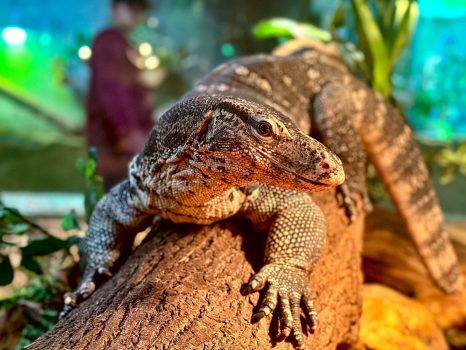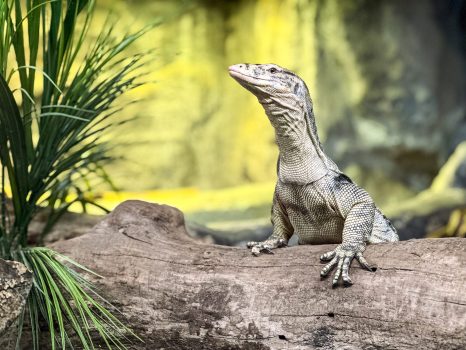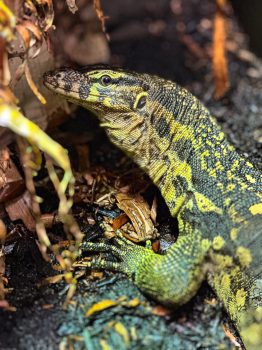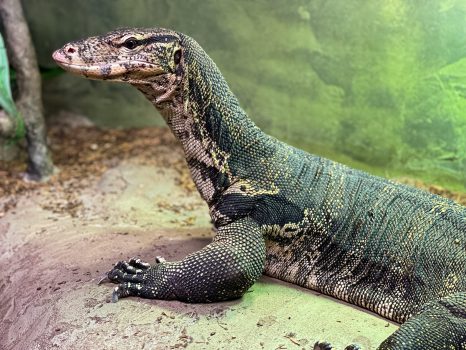Asian Water Monitor
Common Name: Asian Water Monitor
Scientific Name: Asian Water Monitor
Names: N/A
Locations: Vaughan, Whitby and London




Diet
Asian Water Monitors are carnivorous and opportunistic feeders. Their diet includes a wide variety of prey such as fish, frogs, snakes, birds, eggs, small mammals, and carrion.
Average lifespan
In the wild, Asian Water Monitors typically live around 10 to 15 years, although they can live longer in captivity with proper care.
Size
Asian Water Monitors are among the largest lizard species in the world. They can reach lengths of up to 1.5 to 2.5 meters (5 to 8 feet), with some individuals exceeding 3 meters (10 feet).
Weight
Adult Asian Water Monitors can weigh anywhere from 20 to 50 kilograms (44 to 110 pounds), with males typically larger and heavier than females.
About
Asian Water Monitors are widespread across South and Southeast Asia, inhabiting a variety of habitats including forests, mangroves, wetlands, and human-modified landscapes. They are excellent swimmers and are often found near water sources such as rivers, lakes, and ponds.
Size and behavior
Asian Water Monitors are highly adaptable and display a wide range of behaviors. They are primarily terrestrial but are also proficient climbers and swimmers. They are solitary animals and are most active during the day, although they may also be active at night in areas with human disturbance. Asian Water Monitors are known for their keen intelligence and curiosity, often investigating their surroundings and exploring new environments.
Diet and nutrition
Asian Water Monitors have a diverse diet that includes both animal and plant matter. They are opportunistic hunters and scavengers, using their strong jaws and sharp teeth to capture and consume prey. Their diet may vary depending on factors such as habitat, prey availability, and seasonal changes.
Conservation status
Asian Water Monitors are currently listed as “Least Concern” by the International Union for Conservation of Nature (IUCN). However, they face threats from habitat loss, habitat degradation, and hunting for their meat, skin, and use in traditional medicine in some regions. Conservation efforts focused on habitat protection, enforcement of wildlife laws, and sustainable management are important for the long-term survival of Asian Water Monitors.
Fun fact
Asian Water Monitors are known for their ability to use their long, forked tongues to “taste” the air and detect chemical cues from their surroundings. This helps them locate prey, identify potential threats, and navigate their environment.
Call or visit your local Reptilia Facility to learn how you can adopt one of these amazing reptiles.








